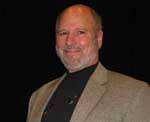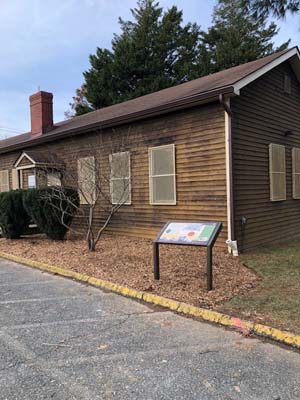

BOYNTON BEACH, Florida — Like millions of others in the U.S., I am feeling impotent, distressed, confused about the murder of George Floyd in Minnesota. Some, far too many, are violently expressing their anger. Some are criminally expressing themselves as rioters, looters, and even murderers of police. A minority have taken advantage of the chaos to promote their political ends. Most, the vast majority of street protesters, are peacefully expressing their fears of self-evident, excessive, deadly, police force. Floyd, an unarmed Black man, in the process of arrest, was horrifically murdered by four Minneapolis cops, three whites and one Laotian.
What could I do? I wanted to protest. I did not want to be caught up in a riot among people who were seeking to cause societal destruction. I do not want to destroy the system. I do want to change it for the better.
Then I realized that, in my own small way, I was already trying to change the system for the better. About a year ago, I, as the president of the Jewish American Society for Historic Preservation, had funded one more historical marker. It recognized the collaborative efforts of Julius Rosenwald, a Chicago retail industrialist philanthropist and Booker T. Washington, the Black American educator, and President of Tuskegee University in Alabama.
The two men had come together as Americans, as equals. They joined to work for the mutual betterment of Black Americans through education and educational opportunity.
At the time, the American educational system practiced racial segregation as “separate but equal.” The reality was anything of the sort. Black Americans, long after Emancipation and the legal ending of slavery, were kept in slavery by being denied the benefits of education and educational opportunity. The doctrine of separate but equal was in truth separate and not equal. Blacks, especially in the 13 states of the South were vastly underfunded when it came to allocating state educational resources.
The doctrine of separate but equal did not end until 1954 when the Supreme Court decided the matter in Brown V. Board of Education. Until the Brown decision that affected the entire United States, racial discrimination in education and educational opportunity was national in scope. It was not just the South that practiced educational slavery. But it was the South that practiced it the fiercest.
Booker T. Washington approached Julius Rosenwald, the two of them from two victimhood backgrounds, slavery and virulent antisemitism. They chose to work together to change America for the better.
Washington shared with Rosenwald his idea of building small local schools for Black children. Rosenwald understood that his money, which was a vast fortune, had no worth to secure his and his fellow Jews’ safety in America unless he used his fortune to change America for the better for all its citizens.
Over the years of Washington’s and Rosenwald’s association, Rosenwald provided the seed money for the building of over 5,200 schools in the South. Rosenwald did not believe in giving all the funds without the community behind the effort. Dependent charity was destructive. Collaborative support raised everyone.
By the time the Rosenwald fund had depleted its resources, 1/3 of all Black American children had educational opportunity and the possibility for upward mobility because they attended a Rosenwald school.
The Jewish American Society for Historic Preservation had funded the marker in a collaborative effort with the Montgomery County, Maryland Department of Parks. The marker was to be placed at one of the last remaining Rosenwald school buildings, now repurposed as a senior center, in the County. Few knew what the building had been. Few knew the role of the Norbeck Rosenwald School in changing Maryland.
Ironically, though Montgomery County had only 15 of the 5,200 schools, they had been key to the later Brown V. Board of Education 1954 Supreme Court Decision.
I had not heard from Montgomery County Parks since we funded and fabricated the marker for them about a year ago. The County wrote the text for the marker. It included two requests from us. The first and most important to us was that Julius Rosenwald’s Jewish identity be recognized.
Rosenwald did what he did because his Jewish values required him to hear the cry of help from his fellow human beings. Rosenwald appreciated that discrimination against Blacks was only a short distance from discrimination against Jews. He spent the vast majority of his fortune helping Booker T. Washington transform the Southern Black American experience for the better because he was a Jew.
For unknown reasons, most markers for Rosenwald schools do not mention that Rosenwald was Jewish. Our markers specifically recognize Rosenwald’s Jewish identity.
The second request we had was would they permit our logo on the credit line. Our logo is a Star of David, against a red, white and blue circled coloring. The County considerately included our logo, our name and our email for added recognition of us as the funders.
I called the County to ask about the disposition of the marker. Had they put it up? They had. It had been done quietly with no programming. Until I asked about the Rosenwald marker today, I did not know it was done.
The George Floyd story is not over. It will offer transformative possibilities for the U.S. For JASHP and our part, the transformative effort is a positive to teach, to remember the past, to shape the future. We, in our small way, contributed to understanding between peoples that mutuality, cooperation for our common betterment is possible. Destruction of property and society are not inevitable if people of good will are willing to come together.
The key text from the Norbeck Rosenwald School reads:
Norbeck Rosenwald School
“County-funded elementary education for African American children did not exist until 1872. Until then, small black enclaves, like Mount Pleasant, pulled community resources to establish schools. A significant boost in financial assistance came in 1917 with the establishment of the Julius Rosenwald Fund. Between 1920 and 1929, fifteen Rosenwald Schools were built in Montgomery County – collectively covered by African American residents contributing $7300 to match the $8200 donated by Jewish philanthropist and Sears founder Julius Rosenwald (1862-1932).”
JASHP is engaged in placing Rosenwald markers outside State Departments of Education in Virginia, Florida, Arkansas, Alabama, and Mississippi.
*
Jerry Klinger is the president of the Jewish American Society for Historic Preservation.
Such an interesting and little known story. Quite apropos to current events.
Thank you Jerry for your important contribution to the cause of removing cross-racial and cross-cultural barriers.
violent protests do not help the Black cause, but MLK and his very peaceful protests and Booker T. Washington and Julius Rosenwald in their quiet manner, did more than all of the crazy actions of today.
Did the Rosenwald schools ever depend on public funding? Remember that “Separate but Equal” didn’t end until after the Brown v.Bd of Education (1954) which meant that
segregated Black schools were usually underfunded and hardly “equal” with White schools.
The Rosenwald fund was structured to be local efforts, public school funds and Rosenwald money.
If the local community did not have money, they offered in kind help, such as construction labor and maintenance. Public funding tapped into the State school building system that was not being equitably allocated to Black educational needs. In other words, they were pushed to match.
Rosenwald provided the key seed money, or even the lion’s share of the funding if needed to accomplish the goal of building schools. He did not want to create a dependency charity in a community that did not want or was unwilling to step up and take care of their own children’s welfare. Rosenwald provided building materials, organizational funding, architectural and engineering support, legal assistance, and most directly $$ to make it all possible in the first place.
Rosenwald did what no one was willing to do on a scale that was local, state, and National.
Rosenwald and Washington’s visions were to build together as equals for the benefit of all. They did. The National Park Service has recognized and honored Booker T. Washington. It has never done so for Julius Rosenwald.
Our individual knowledge cannot compare to the knowledge we have together. The shining example that Rosenwald and Washington gave us showed the importance of sharing knowledge in education. Rosenwald’s philanthropy is a testament to the Jewish principle of sharing with all.